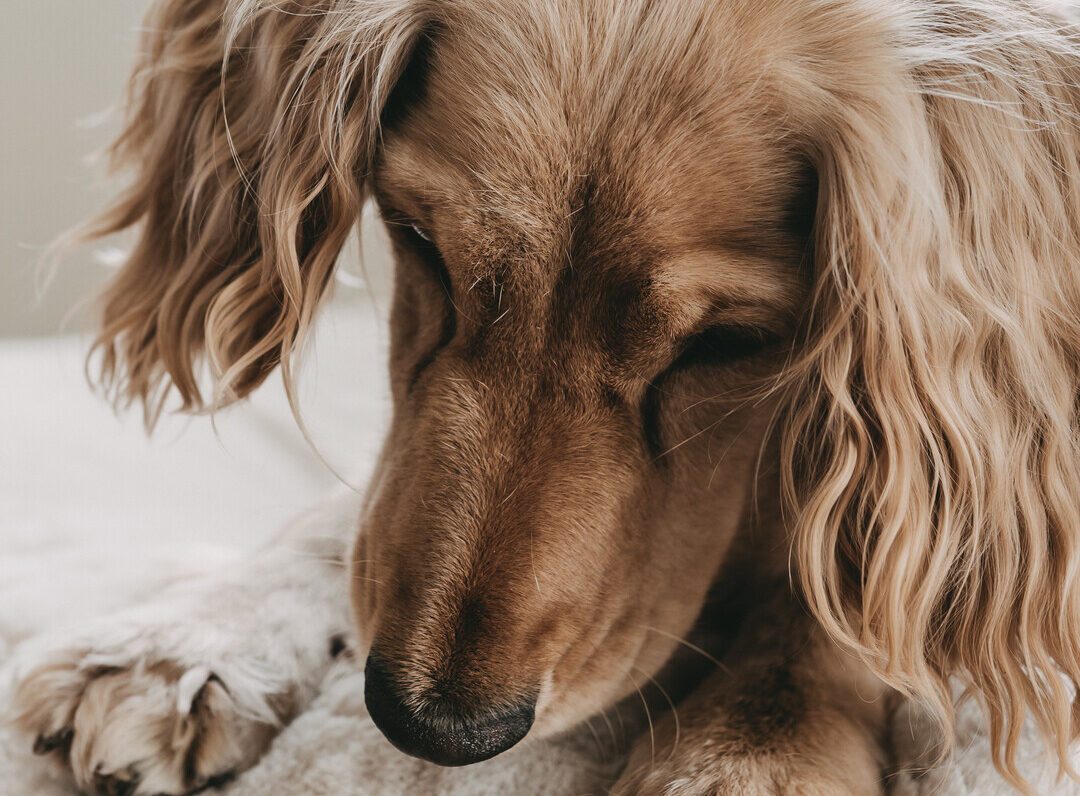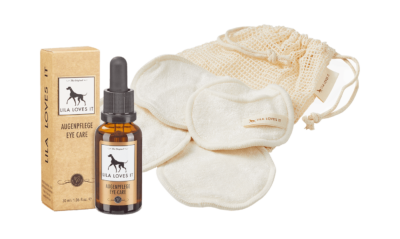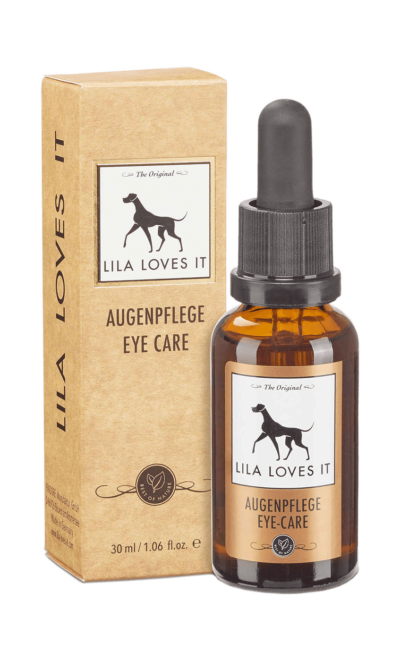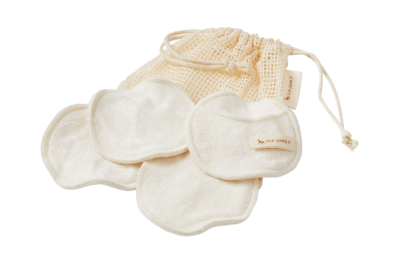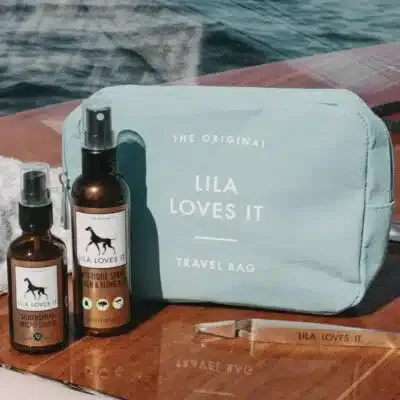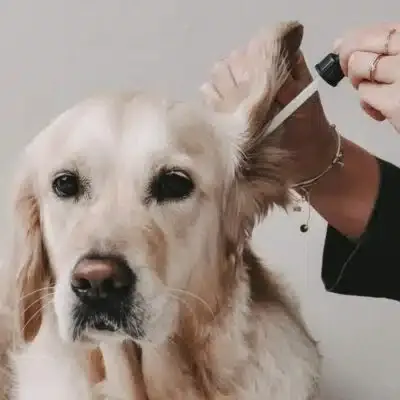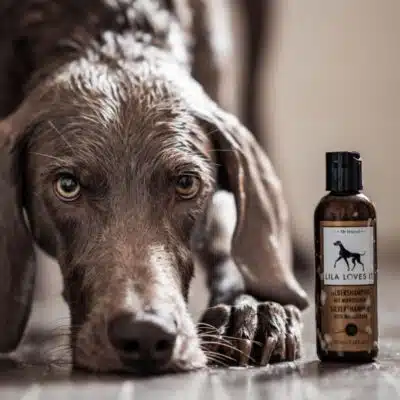General information about eye care
People’s eyes don’t like dry heating air any more than dogs’ eyes do. So, although the place where your four-legged friend snuggles up in front of the heater is well-intentioned and certainly cosy and warm, the air from the heater may cause dry eyes (and nasal mucous membranes, too, of course!), which then water, burn and cause unnecessary discomfort for the animal. The same applies to draughts – for example in a moving car with the windows open. Susceptible animals will immediately catch a painful conjunctivitis.
It is completely normal that after a long nap, especially in the morning, there are encrusted areas in the corners of the eyes. People know this phenomenon from themselves as well. It occurs sometimes more and sometimes less – depending on breed, habits or even sleeping place and even weather. In phases of pollen, for example, dogs suffer just as much as humans; then eye care must be a little more intensive.
As a rule, smaller dogs are more likely to be affected by eye problems than larger ones – this is due to their body height, which is simply closer to dust, dirt and other things swirling around on the floor. Breeds with an atrophied eye-nose canal also experience increased problems, and it is best for owners to find out about this before acquiring a dog of this type.
For eye care that goes beyond the quick removal of a small crust, a non-burning eye care product should be used that contains healing and soothing substances that do not dry out the eye. As with many other dog care products, aloe vera is an active ingredient recommended by veterinarians. Sea salt, known in human products for example from nasal spray, is also a proven ingredient. Eye care products should be free of chemicals and preservatives. Getting the dog used to handling the eye at an early stage (combined with love, praise and treats!) with the usual aids (non-fluffy, soft cloth, cotton pad, etc.) makes the duty easier for you as the owner, but also makes it easier for the vet to intervene in an emergency.
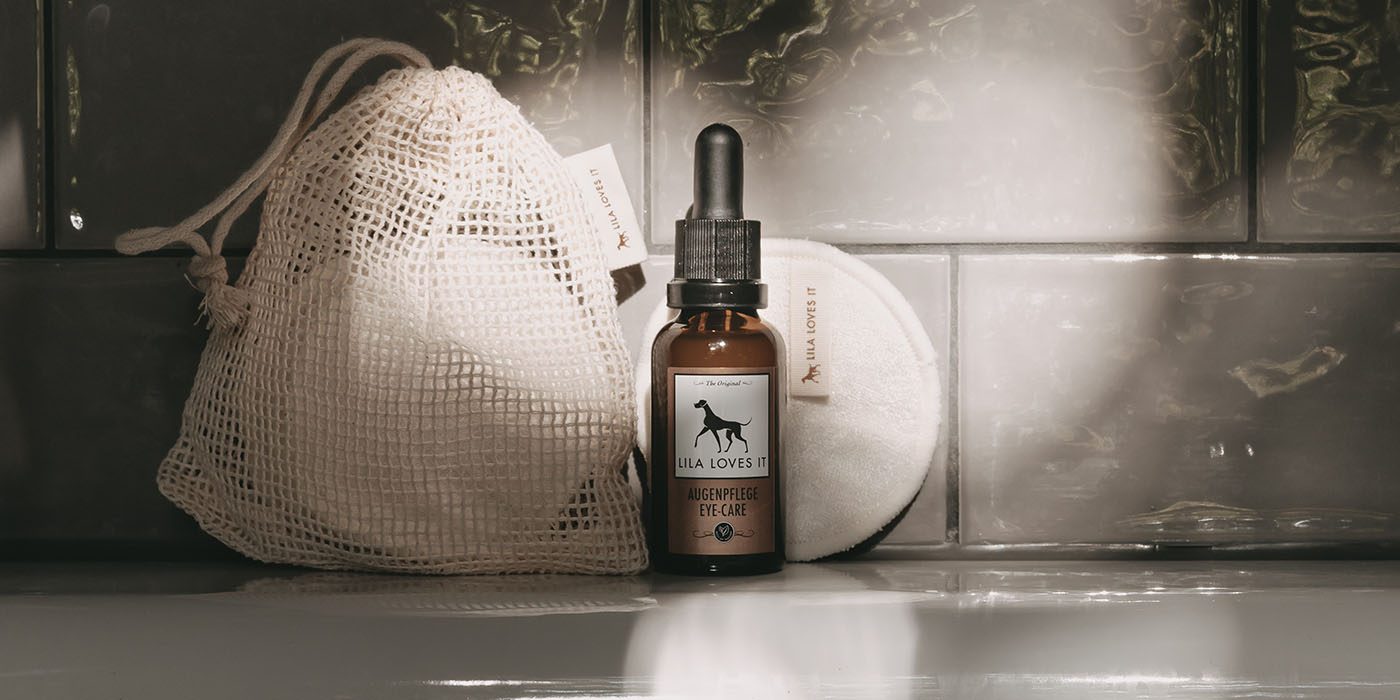
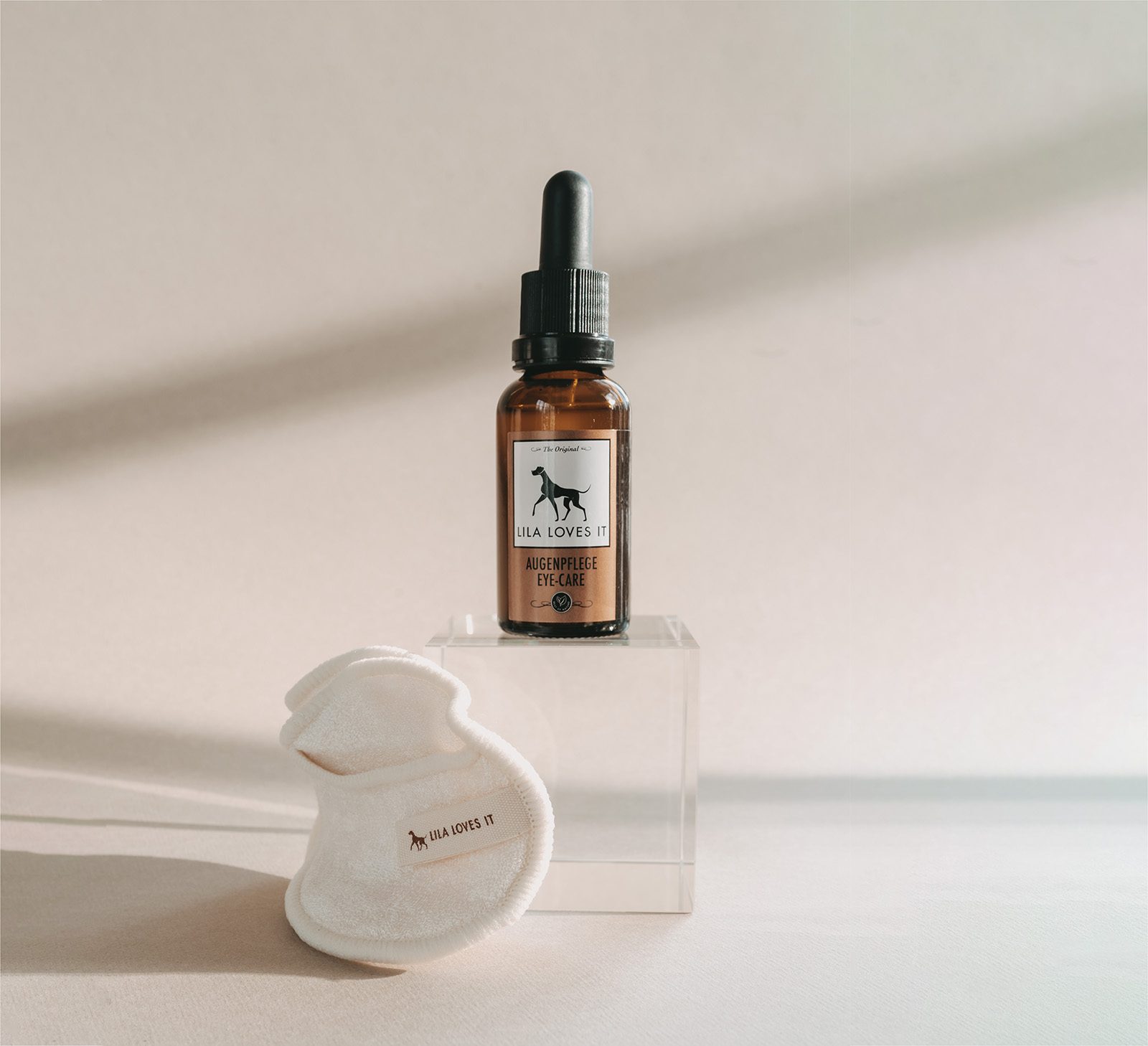
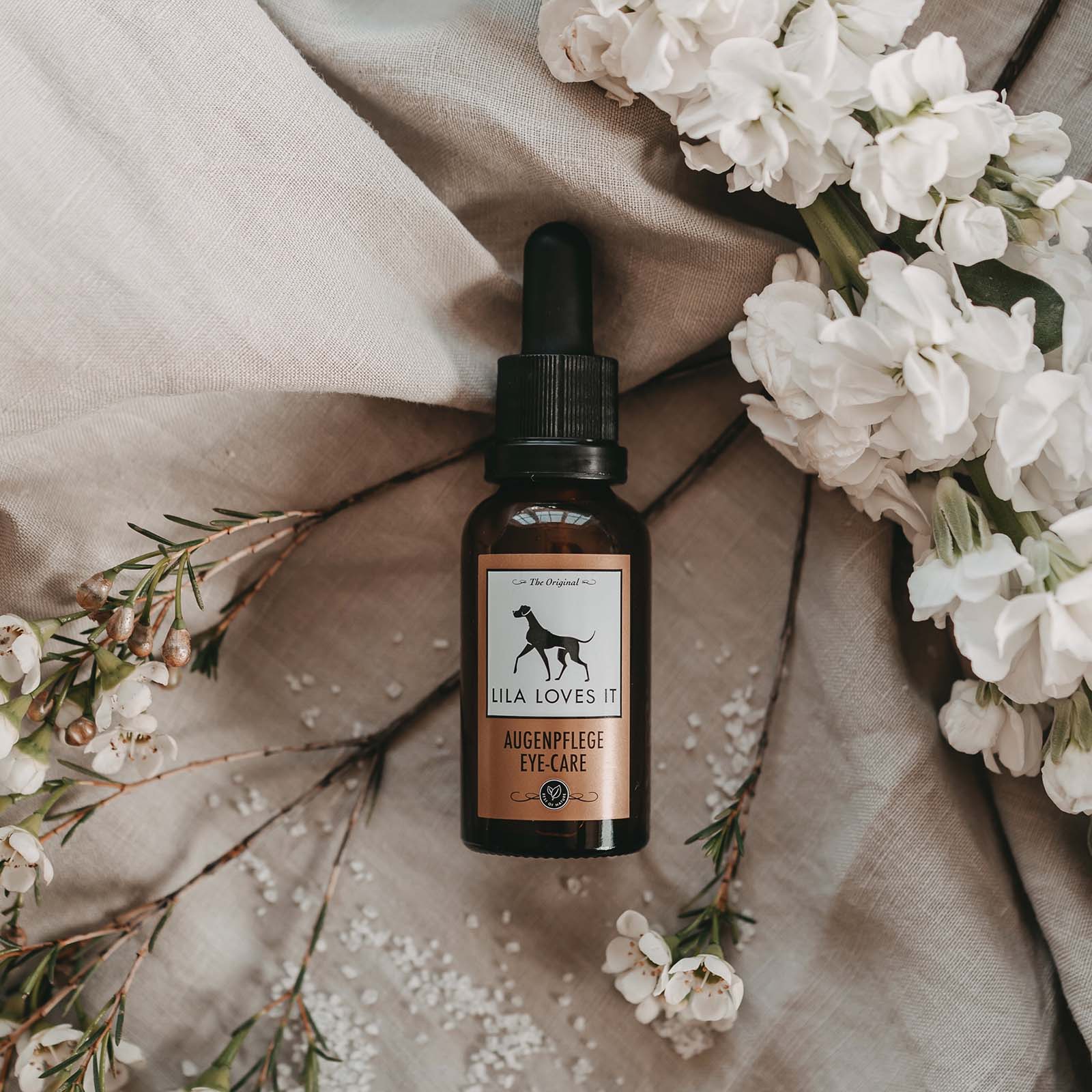
Discoloured fur around the eyes
Dogs that often have watery eyes and thus also crusting around the eye often show discoloured fur around the inner corner of the eye. This does not look nice, which is a reason to rid the animal of the crusts and mucous discharges from the eye as often as possible. Especially with white fur, the “eye rims” are then a visual disturbance. Through regular eye care, the tear fluid and the crusts do not remain on the coat for so long – thus reducing the colour changes in the coat by nature. However, there is also the option of changing the food: If the food does not contain carrots, beetroot or other colour-intensive ingredients, the residues on the eye will not affect the light coat to the same extent.
The easiest way to avoid discoloured fur around the eyes is not to let it grow too long in the first place: Where there is hardly any long hair, there is neither tear fluid nor crusting – so nothing can discolour here. In any case, especially with long-haired breeds, dog owners should make sure that the hair on the eye is as short as possible and does not impair vision or that the fur hairs end up in the eye. If you don’t dare to use scissors and the like in this sensitive region, you can find a groomer who epilates, cuts or trims. Long dog ponies (-> for example with the Yorkshire) are tamed with a braid whenever possible. A clear ban applies to cosmetic products, such as hair dyes, bleaching agents and the like!
Diseases of the eye
As already mentioned: The small crumb, on which there may also be moist components, is completely normal in the morning and also once in between. However, if the dog shows increased
- blinking,
- constant tearing of one or both eyes,
- purulent discharge
- rubbing (on blankets, pillows, furniture) or
- scratching, or
- if he cannot keep his eyes open properly
these are individually or in combination signs of an eye disease.
In addition, there are often symptoms such as
- irritability,
- loss of appetite,
- phlegm,
- whining or
- whimpering due to pain.
The animal may suddenly no longer allow itself to be touched, even by familiar people. If you notice such signs as a dog owner, no amount of cleaning and grooming will help; then it is imperative to consult a vet. Anything from allergies to severe internal diseases can be the cause of eye symptoms. You must also go to the vet immediately if you notice
- an injury,
- a foreign body of any kind,
- a haematoma or a swelling,
- an opacity or
- unnaturally dilated or differently sized pupils during daily eye care and the associated check.
Under no circumstances should you use home remedies, human medicines or refrain from an immediate visit to the vet. You may be risking your dog’s eyesight or running the risk of not having another serious disease diagnosed and treated in time.
